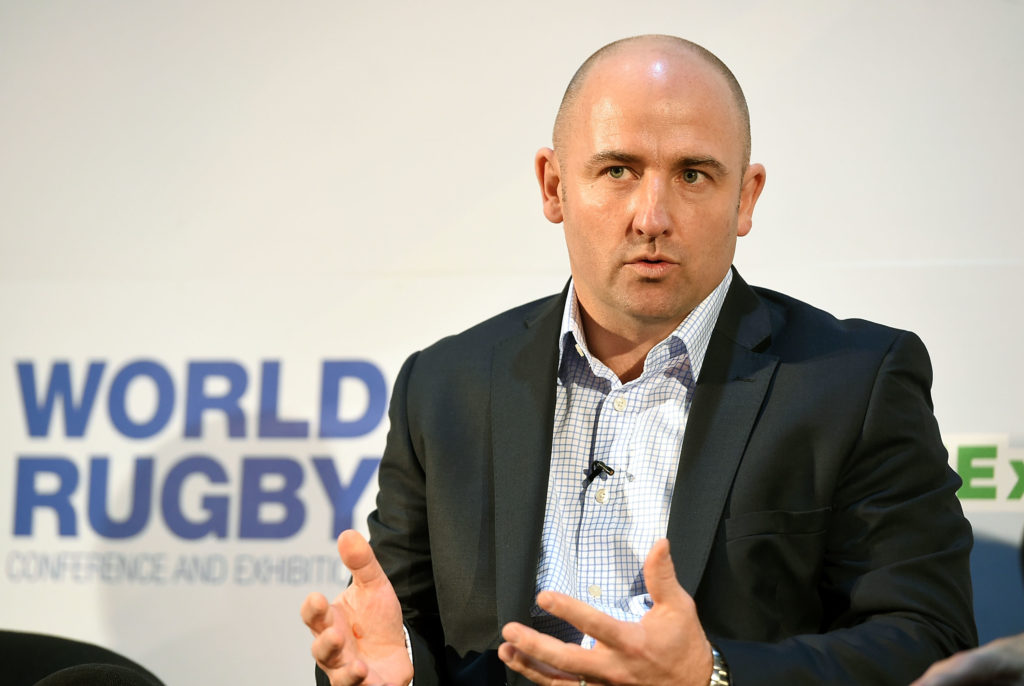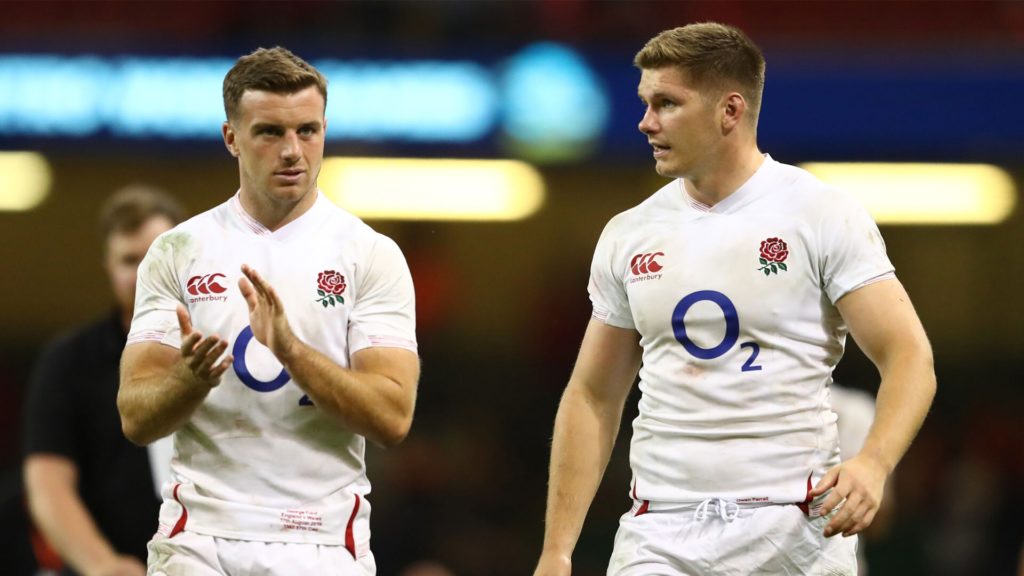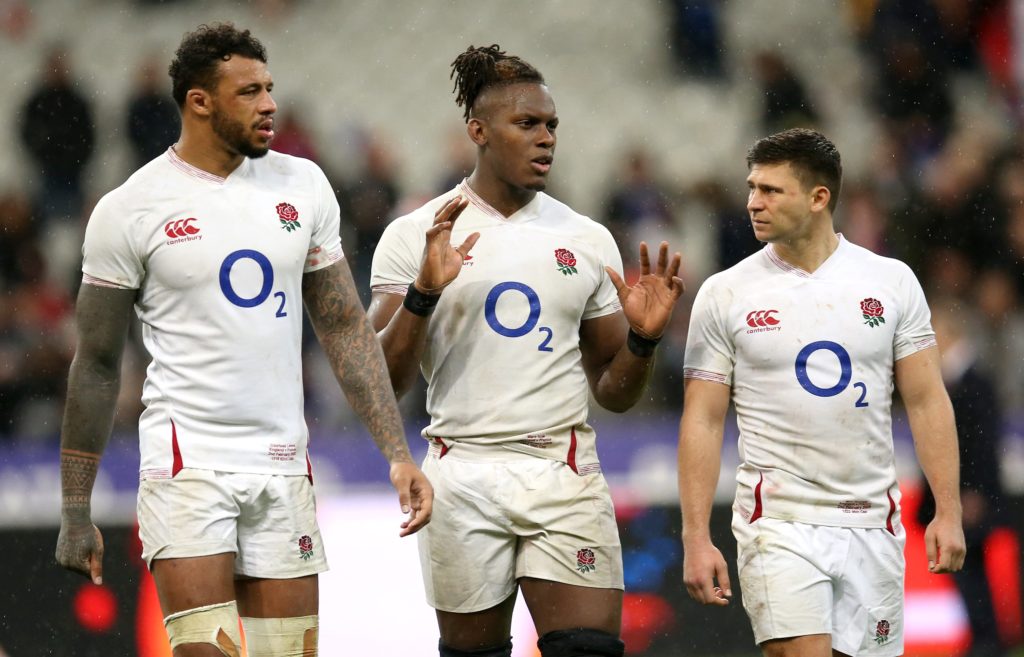Take a peek behind the backcloth of any professional rugby production, poke about in the wings and the flies, the crossovers and the catwalks and you’ll find a backstage crew of very familiar faces.
There’ll be, obviously enough, a maestro; a Director of Rugby or a Head Coach, together with any number of assistant coaches – Forwards, Backs, Attack, Defence, Skills, Kicking, Scrum, Line-out, Contact, Transition, take your pick – and a cohort of Strength and Conditioning staff who’ll audit your BMI to eight decimal places.
Bear with me. We’re just getting started.
In all likelihood, there’ll be a selection of Performance Analysts, Statisticians, Sports Scientists, Athletic Performance Coaches and Video Analysts who’ll stalk and measure your every step; there’ll also be Team Doctors, Physiotherapists, Masseurs, Nutritionists, Chefs and Rehabilitation Coaches who’ll maintain and mend the machine, not forgetting Player Development Managers, Team Managers, Media Managers, Logistics Managers, Resources Managers, Operations Managers and Kit Managers who’ll deal with anything from your social media profile to the creases in your match-day shorts.
All of which leaves the two things that are generally missing; the first being the kitchen sink and the second being the Sports Psychologist. Certainly if you visit the websites of each of the top-flight teams in these islands – from Connacht to Cardiff, from Glasgow to Gloucester – and trawl through the advertised support staff, you’ll find that only two of 24 clubs, Bath and the Ospreys, have a Sports Psychologist listed; repeat, two of 24. ‘Mind over matter’ doesn’t seem to apply in rugby, at least not at the moment.
We’ve had a decade of fitness, we’ve had a decade of analytics, we’ve put a microchip in the back of people’s shirts but the mental game has just as many facets as the physical game.
“The mental game is the next frontier,” says top sports psychologist, Jeremy Snape. “We’ve had a decade of fitness, we’ve had a decade of analytics, we’ve put a microchip in the back of people’s shirts but the mental game has just as many facets as the physical game.”
“So, where we have a Sprint Coach, an S&C coach, a Physiotherapist and a soft-tissue Masseur, in the next five years we’ll have exactly the same deployment of mental skills from Clinical Psychology through Lifestyle Psychology and Injury Rehabilitation right through to the High Performance Psychologist. And that’ll be part of every team.”
Jeremy Snape is a former international cricketer who now runs ‘Sporting Edge’, a consultancy that does exactly what it says on the tin and not just in or through sport. His company offers insights gleaned from as far afield as Sandhurst, the Royal Ballet, the London Business School, Team Ineos and Le Cirque du Soleil, together with podcasts such as ‘Inside the Mind of Champions’.

“Tackling technique, for example, is grooved over a three or four-year period,” he says. “Line-out jumping technique too but why aren’t we looking at a mental skill like emotional control? It’s exactly the same, it’s a skill that can be developed. ‘I was slightly undercooked today, I didn’t really feel up for it’; okay, let’s talk about that and coach that out. If your mental game was 90% of your performance, why aren’t we spending at least 50% of our time honing the mental game?”
In Snape’s view, culture is often key to whether people embrace the human factor; both within and beyond the sport itself.
In America coaching and self-improvement seems to be part of their wider culture but when you port that over to England, we’ve got that stiff upper lip, Dunkirk spirit no matter how bad things get.
Jeremy Snape, Sporting Edge consultancy
“In America coaching and self-improvement seems to be part of their wider culture but when you port that over to England, we’ve got that stiff upper lip, Dunkirk spirit of no matter how bad things get, you keep your head down and keep driving through,” he says. “We’ve also got that combination of the macho pride of these huge physical specimens who pride themselves on their power and their resilience and if we put 90% of our resources into the physical game, we’ll be the best we can possibly be. That’s outdated thinking.”
“When a performer steps over the line, yes, they take their physicality and those skills that you’ve taught them during the week but the biggest thing they take with them is their mindset. And if you haven’t trained or prepared that in some way then you’re only going to get half the performance out of the player.”
Certainly, when you stick elite sportsmen and women under the glass – and Snape spent much of 2016 working with the England rugby team – it’s not hard to define what makes them the competitors they are.

“Owen Farrell was outstanding certainly, no surprise there,” he says. “His emotional control was amazing; his ability to think rationally under pressure was very special. I wouldn’t say he was overly positive – it’s not too fluffy with Owen – but yes, business-like.”
“I thought George Ford was impressive; great communicator, work-rate, really high quality, worked well and brought people together and, for me, Maro Itoje was somebody who had that dynamo of being an incredibly quick learner, which again is part of the DNA of a real top performer. His ability to operate at high intensity and keep his cool, most of the time, I thought was really impressive but then after the match too, deconstructing his game, looking for feedback, asking questions.”
Maro Itoje was somebody who had that dynamo of being an incredibly quick learner, which again is part of the DNA of a real top performer.
Jeremy Snape, Sporting Edge consultancy
“The other person at that time whom I had huge respect for in a different way, and this is a way that doesn’t often get talked about, was Chris Robshaw who was the best follower I’ve ever seen in any team; that’s a strange phrase, but to have gone from such a devastating loss in the World Cup as the captain and to take that very personally and then to come back towards the mature part of his career and go again and be incredibly positive and get his job done I just thought that showed a great mental maturity.’
The issue for rugby, in the words of one Test player, is that sports psychology is too often seen as a luxury rather than a necessity, which is why said player funds a psychologist privately out of his own pocket. Not all do likewise or seem to fully appreciate that, to quote the cliché, the body achieves only what the mind believes.
“We see all this talent coming through the academies but really that’s just your ticket to play the game,” says Snape. “Whether you stay there is a completely different thing because you’ve got to play out of position, play with a dodgy hamstring, play when you’ve fallen out with the coach: these are the dynamics that shape the player.’

“If you can be mentally resilient enough to have a five, ten-year professional sporting career, there’s something quite special in that and if you can take that to the international level then that’s incredible. But you almost have to reinvent yourself every season. Elite performers have that courage not only to shine a light on the darkest areas of their game – because they know the opposition are doing it so they might as well do it themselves – but have the courage to learn and test and innovate. And that’s what keeps people at the top.”
It’d be facile to suggest rugby ignores or hasn’t embraced the value of The Mind Game. The All Blacks pioneered ‘Red Head, Blue Head’; England in their World Cup-winning pomp worked to T-CUP (‘Thinking Correctly Under Pressure’) and only a fool would imagine professional teams in the Premiership or the Top14 simply don’t bother with sports psychology just because they don’t list specialist practitioners on their coaching staff.
But to what extent? Is there a genuine balance ‘twixt matter and mind? And why, unlike many Olympic sports, or cricket, or golf or tennis, does rugby seem to find it awkward to adapt to its own unique pressures?
“In most sports I’ve worked in you’re trying to calm the players down,’ says Snape. ‘But when I started to work with England rugby, I saw the sort of aggression that players needed in a continuous play, contact sport. So the worst case scenario is you’ve got somebody annoyed about a tackle or a referee’s decision from five minutes ago and they’re allowing that to contaminate their emotional state and hijack them for the next 20 minutes. So what we’ve got to try to do is to have these reset points.”
Is there a genuine balance ‘twixt matter and mind? And why, unlike many Olympic sports, or cricket, or golf or tennis, does rugby seem to find it awkward to adapt to its own unique pressures?
Jeremy Snape, Sporting Edge consultancy
“One of the things I tried to work on was to focus on the ball not the man, so it became an objective thing rather than subjective; you can’t be angry with the ball but you can be angry with your opposite number, so that’s one of calming techniques that you might use.”
“The other thing is centring yourself, this ability to bring the player back to the present moment. So, this emotion of wanting to win everything, I translate back into WIN which stands for ‘What’s Important Now’, as in, what’s the next job? Get into the defensive line, make the tackle. We’re not getting caught up in the past. We’re resetting ourselves to think about the next job.’
Rugby has ground to make up here. Golf worked out a long time ago that if a round lasts four hours and if, say, seventy shots take a total of four minutes to hit, then perhaps it was worth considering what the player was thinking about for the remaining three hours and fifty-six minutes of his/her competitive day. Rugby, urgently, needs to start doing the same.
“The problem with the mental game is that it’s woven into everything we do and pressure is the single biggest ‘derailer’,” says Jeremy Snape. “We have exactly the same physicality, we have exactly the same tactics, exactly the same technique in our last training session on the Thursday, so what stops the execution being perfect on the Saturday? It’s the mental pressure. So how come we don’t tackle that on Friday?”


Comments
Join free and tell us what you really think!
Sign up for free